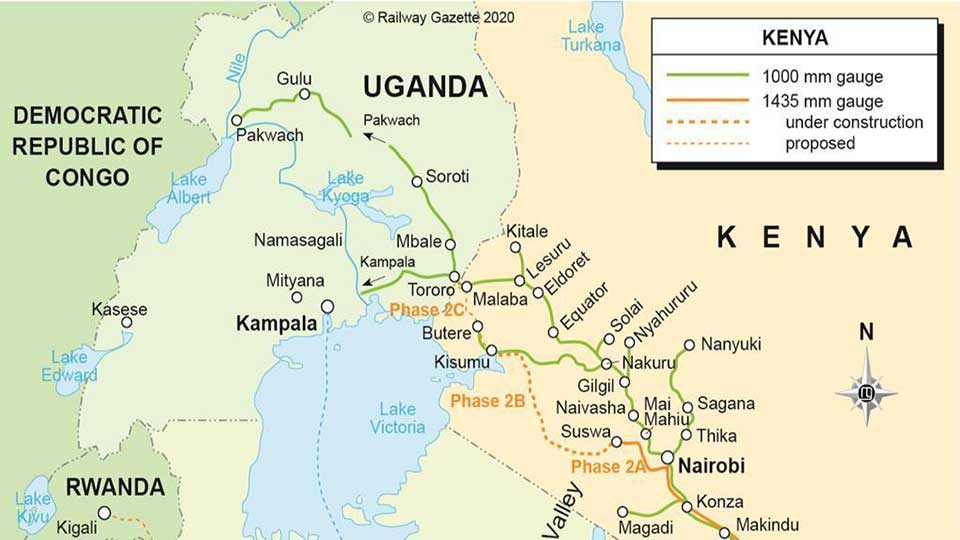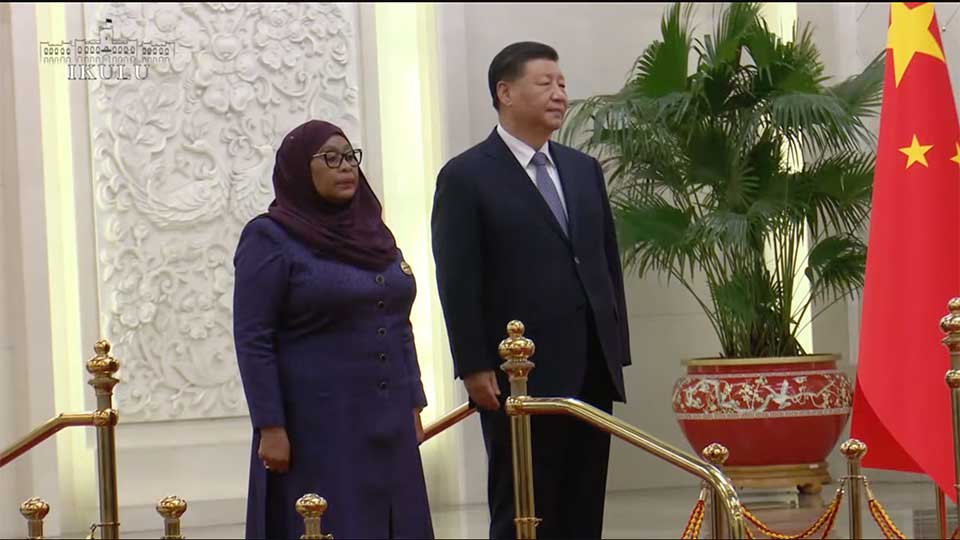Live Feed
The News Feed is curated by CGSP’s editors in Asia and Africa.
The Angolan government has signed a $450 million agreement with the Portuguese infrastructure group Mota-Engil to run rail and logistics in the Lobito Transport Corridor, which connects Lobito Port to the ...
Kenya’s Supreme Court to Weigh In on SGR Contract
Kenya’s Supreme Court will rule on the legality of the country’s Standard Gauge Railway contract. Opponents say the contract being awarded to China Road and Bridge Corp contravened Kenya’s competitive ...
China Cuts Import Tariffs for Ten Poor Countries
China will cut tariffs on 98% of taxable imports from ten low-income countries. 8,786 different products from Afghanistan, Benin, Burkina Faso, Guinea-Bissau, Lesotho, Malawi, Sao Tome and Principe, Tanzania, Uganda, and Zambia will ...
China’s Growing Influence in West Africa
As former colonial powers like France and the United Kingdom lose their relevance in West Africa, the region is pivoting to China. This trend comes as China’s own confidence in ...
Chinese Oil Buying in Africa Plunges Amid Shift to Suppliers in Russia, Persian Gulf
Chinese oil imports from African countries dropped 22.6% year-on-year in the January-September period, highlighting a decade-long transition away from the continent to suppliers in Russia, the Persian Gulf and Brazil. ...
Algeria is the Latest Developing Country to Get in Line to Join the BRICS Group
The Algerian Ministry of Foreign Affairs officially submitted its application this week to become a new member of the BRICS club. Algeria now joins a growing list of developing countries, ...
Chinese Foreign Ministry Spokesman Said He’s “Not Aware” of Reports Xi Will Travel to Saudi Arabia Next Month
Chinese Foreign Ministry Spokesman Zhao Lijian tried to tamp down mounting speculation that President Xi Jinping will travel to Saudi Arabia next month to attend a pair of summits. Zhao ...
Chinese State Media Tries to Put a Positive Spin on Trade Ties With Tanzania
The Communist Party-run tabloid Global Times is trying its very best to send a positive message about the state of China’s trade with Tanzania. On Tuesday, the newspaper featured an ...
Just as in Nigeria, Kenyan Lawmakers Are Also Confused About What It Means to Waive “Sovereign Immunity” in Chinese Loan Contracts
Anger is mounting across Kenyan society over the terms of the loan agreements with the China Exim Bank for the multi-billion dollar Standard Gauge Railway that were released by the government on Sunday. ...
New Undersea Cable Will Link China to a Trio of Countries in Southeast Asia
Six telecom carriers from four countries in Asia signed an agreement to build a new regional undersea high bandwidth cable. The $300 million Asia Link Cable system will stretch 6,000 kilometers from southern ...
Kenyans React to Publication of SGR Documents
The decision by the incoming government of Kenya to release some documents relating to the controversial Chinese-built Standard Gauge Railway is causing massive controversy at home. The main reaction has been anger that ...
People’s Bank of China Exec Blames Debtor Countries for Transparency Issues
As controversy swirls over the role of Chinese lenders in successive Global South debt crises, China is still getting used to its new role as a global financier. This was one of the ...
Kenyan Purple Tea Wows Hunan
The first shipment of 240 kilograms of a rare kind of Kenyan purple tea has arrived in Hunan province. The tea, which is a clear lilac color when brewed, is only the latest ...
Climate, Geopolitics Greatest Threats to African Development: Study
For Africa to achieve its development potential, it needs uninterrupted cooperation with the United States, Europe, and China. This is a key finding of a recent set of future projections by the Institute for Security ...
Why Kenya Should Have Never Borrowed So Much Money From China to Build the Standard Gauge Railway
The Kenyan national television network KTN broadcast a scathing 10-minute mini-documentary on Sunday that detailed the controversial history of the Standard Gauge Railway and how the lack of proper due diligence set the ...
Loan Revelations Spark New Confusion Over Whether Kenya’s Port of Mombasa Can Be Seized by China
There is renewed anxiety in Kenya over whether the Port the Mombasa is at risk of being seized by Chinese creditors in the event that the government fails to repay the loan for ...
Even Amid Debt Crisis, Kenya Still Wants to Extend SGR to Ugandan Border
The burgeoning fiscal crisis in Kenya is not dampening the government’s ambition to extend the Chinese-built Standard Gauge Railway from the Naivasha in the Rift Valley all the way to Kisumu near the ...
Huawei Eyes Expansion in the DR Congo
A delegation of senior executives from Huawei’s Africa division met on Friday with Congolese Prime Minister Jean-Michel Sama Lukonde at his office in Kinshasa to discuss “the DRC’s digital development.” No other details about ...
Why Sharif’s Recent Visit to Pakistan Wasn’t as Successful as Many Think
Dear Eric and Cobus, Because I know you all care deeply about this topic, I thought I’d share my take on the Pakistan-China relationship and what came out of PM Sharif’s recent Beijing ...
WEEK IN REVIEW: Canada To Become Newest Member of the U.S.-Led Indo-Pacific Economic Framework (IPEF)
Canada will become the newest member of the U.S.-led Indo-Pacific Economic Framework (IPEF), a loose group of Asia-Pacific countries ostensibly aimed at countering China. Foreign Minister Melanie Joly said the move is part of ...
Tanzania President Suluhu Lands in Beijing, Next Up to Meet With Xi
Tanzanian President Samia Suluhu Hassan arrived in Beijing on Wednesday for a two-day visit that includes meetings with Prime Minister Li Keqiang and President Xi Jinping. President Hassan is the first African leader to ...
As More Manufacturers Look to Exit China, Many May End Up in Mexico
Disruptions brought on by China’s draconian COVID Zero crackdowns, rising wages, and stricter environmental controls are all contributing to an exodus of manufacturers. While many are heading to Vietnam and other Southeast Asian ...
China is Happy About Lula’s Win in Brazil, Despite Criticism
Luiz Inácio Lula da Silva’s return to power could rejuvenate the relationship between Brazil and China and help to speed up the reform of the global order. So says Zhou ...
China Harbour Completes Construction of West Africa’s Largest Deep Water Port in Nigeria
The state-owned China Harbour Engineering Company completed construction of the $1.5 billion Lekki Deep Sea Port near Lagos and officially handed over the facility to its Nigerian partners. Lagos State Governor, Babajide Sanwo-Olu, ...
South Africa’s Naspers Denies Rumors It Plans to Dump Tencent Shares
South African tech investment firm Naspers denied rumors that it is in talks with the Chinese state-owned investment company CITIC to sell its $70 billion stake in the Chinese tech behemoth ...
China-Africa Trade via Hunan Province is Booming
Customs authorities in Changsha, the capital of China’s southern Hunan province, reported $2.6 billion in two-way trade between the city and African countries in the first three quarters of the year. ...
Chinese Automakers Look to Developing Countries to Boost Sales and Production
The war in Ukraine opened new production opportunities for Chinese automakers in Central Asia, while growing demand in Latin America and South Asia for SUVs and EVs has sparked a new sales push ...
Lula’s Victory Expected to Boost China-Brazil Ties
Chinese President Xi Jinping was quick to send his congratulations on Monday to Luis Inacio Lula da Silva on his re-election as president of Brazil. The Foreign Ministry in Beijing was equally ...
China Isn’t Spending Anywhere Near as Much on Aid to Pacific Island Countries as Many Think
New research reveals that Chinese aid spending in Pacific Island Countries (PIC) is now at the lowest level in 14 years, challenging the widely held perception that Beijing is showering ...
The Cost to Build An EV Battery is Going Up… A Lot
This chart explains in part why Chinese battery giants are moving as fast as possible to lock up supplies of the key ingredients needed to manufacture lithium-ion batteries used to power electric vehicles. ...
Introducing CGSP Intelligence
CGSP Intelligence gives you the information advantage on Chinese activities in the Global South. CGSP Intelligence is launching in Summer 2025, with analysis and a full set of data tools designed for corporate and enterprise leaders.
















































